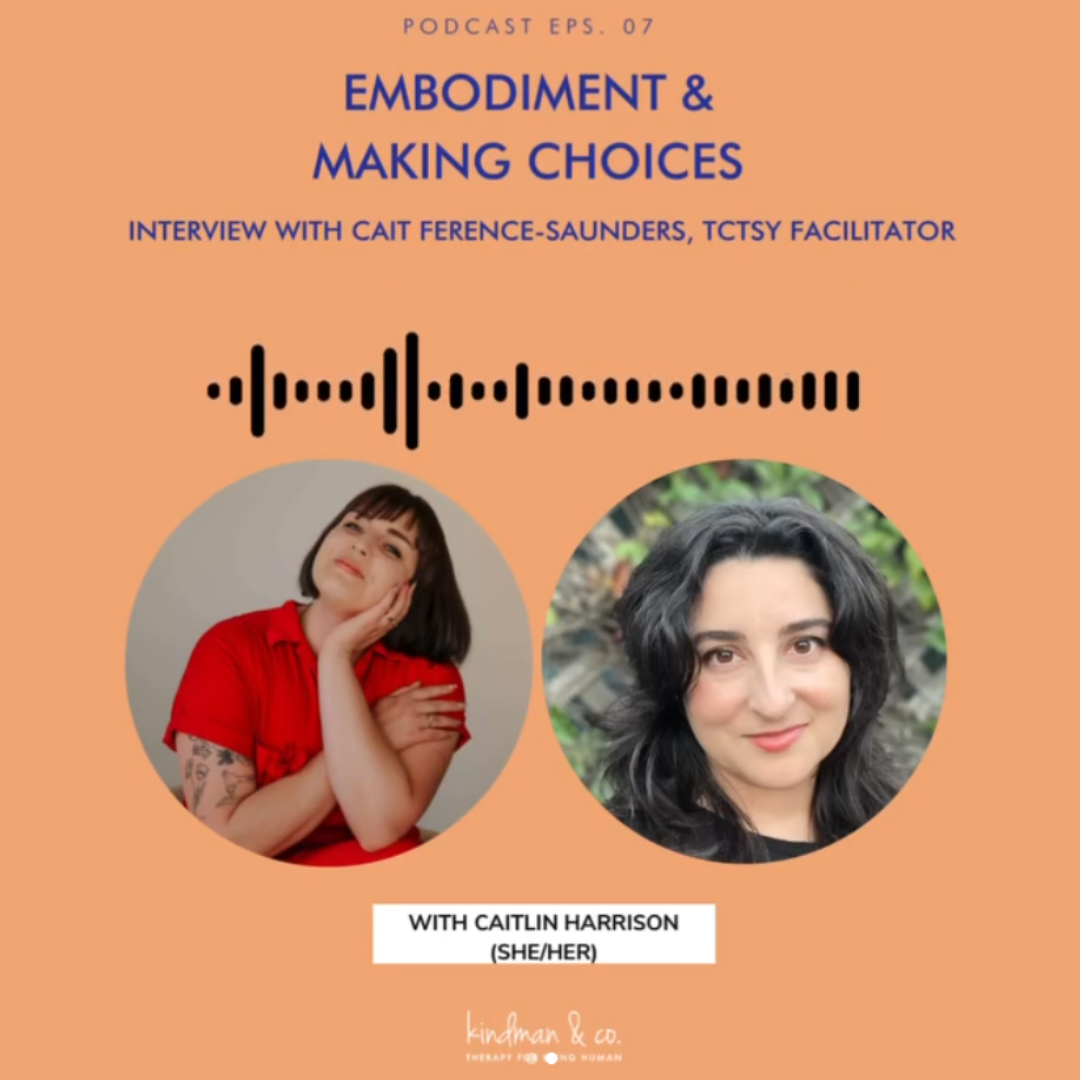Mirror Moments Therapy consists of
Caitlin Harrison, LMFT (she/her)
Photo by Wanderlust Creatives
Here’s a little about me:

My Therapeutic Philosophy
Relational
I am firmly rooted in relational therapy. Relational therapy means that you and I create a therapeutic relationship together that gets to be the biggest tool for change in your life. If you’ve experienced a relationship that feels life giving and makes you want to be a better version of yourself, this is what therapy can be like.
Because I am a relational therapist, there is typically more of me in the room compared to the traditional “sit on the couch and talk to a blank slate” kind of therapist. As we work together, you will get to know me as a person. That’s because I am one and I am deeply rooting for you! I find that being my whole self allows others to feel empowered to do the same.
My humor and my deep caring nature is what helps me to shape an authentic relationship with you. Yes, I actually care about and think about my clients all the time.
I believe that therapy is a huge privilege and investment of time, money, trust, and more. Because of that, I work hard to ensure that this is working for the both of us. I aim to be honest and transparent in the therapy room, to both help build a reciprocal relationship and also to ensure trustworthiness.
Embodied
Additionally, a goal of my work is to help folks get more embodied. This is because we feel our feelings in our body before our brains. So what this may sound like during session is me reflecting back to you how your body is showing up, as it appears that you are feeling/processing something without noticing. The more attuned you can be to your body, the easier it is for you to make empowered and authentic choices!
Systemic Acknowledgement
Lastly, my approach to therapy will always include social justice and recognize the need to name the oppressive systems that we live in. You do not live in a vacuum and we must name the outside factors that are impacting your day to day. Especially with our current administration in place, it is crucial to identify and validate that your anxieties and feelings of unsafety are real. But I know these systemic pains go back hundreds of years. White Supremacy, the patriarchy, white Christian Nationalism, capitalism, consumerism, and the beauty industrial complex are all systems that must be acknowledged and externalized while working through your healing. Should you and I not share the same identity, as a white, cisgender, able-bodied woman, it’s important for me to be the one who acknowledges my inherent power and privilege in our dynamic. Of course it will shape how we view and experience the world, and I want to build that safety in having those conversations with you. Thank you for your trust in this process.
Fast Facts
White, middle class, able-bodied person
Strives to be an intersectional feminist
Eldest daughter of three
Grew up in a conservatively Christian environment
Purity Culture survivor
Married 7+ years to my amazing husband
New mom to a wonderful son
Also a mom to an English Bulldog (don’t worry, she’s not a therapy dog)
Former theater kid
Used to want to be a pastry chef & I still love to bake when I can
California Licensed Marriage & Family Therapist #149484
Why “Mirror Moments” ?
I really love the imagery of mirrors, and especially, disco balls. Mirrors are the best metaphor for attuned relationships. The best relationships are ones where your wholeness can be reflected back to you— the positive and shiny parts, as well as the parts you were trying to hide. Vulnerable relationships mirror those qualities with love and care, so that you can find yourself in them and step into the best version of you.
With mirror moments, the idea is that therapy is only a small part of your schedule, but in that time we spend together, we build a consistent relationship together in which I am able to reflect back what I see— the whole person in front of me who wants more out of life and wants to have better relationships.
Then, you get to take what was reflected back and implement it into your other relationships. These moments, where you feel seen and understood and challenged and celebrated, get to be a ripple effect into you building your most effective and vulnerable relationships. I’m a big believer in the ripple effect. And, as with community/grassroots efforts, I believe is these small person-to-person transactions that allow for the biggest changes.
And you know the thing about disco balls is that they are decorations covered in mirrors. All of these tiny reflectors that when put together, get to reflect back the light in such a dazzling way. I view community in this lens. When you work on yourself individually, it helps the collective. We are a disco ball— shining together and making it brighter and inspiring others to do the same. Cheesy? Yes. But no one has ever accused me of being lactose intolerant, I love the cheese!
Trainings
Creating a Kink-Friendly Practice: AASECT, American Association of Sexuality Educators, Counselors and Therapists
Healing Intergenerational Trauma with Peter Levine PhD and Efu Nyaki: The Embody Lab
Reclamation as a Clinical Intervention: Reclamation Collective
Get to know me through these podcast episodes and articles!
Permission for Pleasure with Cindy Scharkey
How Anxiety and Perfectionism Show Up in Your Sex Life
Speaking Our Minds Podcast with Brittney Moses and Ranela Kaligithi
Episode 106: When Religious Trauma Makes You Question Everything with Caitlin Harrison
Out of Session with Kindman & Co.
The Fear of Being Too Much
This is a solo episode with Caitlin ranting about what comes up when people are told they’re “too much”.
Out of Session with Kindman & Co.
Embodiment & Making Choices with Cait Ference-Saunders
Conversation with Cait on religious trauma, embodiment, and the importance of agency.
-
“Has ‘Little Treat Culture’ Gone Too Far? Therapists Have Thoughts” By Kelsey Borresen
Read on as Caitlin backs this trend, saying, “I more so think the issue is criticizing trends that typically women partake in,” Harrison said. “Society loves to comment on and shame women for things that allow pleasure. Limiting pleasure feels puritanical and boring to me.”"
-
-
September 2022 Huff Post
“9 Relationship 'Rules' You Can Totally Ignore, According To Therapists” by Kelsey Borresen
-
July 2022 Huff Post
“7 Things Happy Couples Do After A Fight” By Kelsey Borresen
-
Article from September 2022, and is based on an interview that was recorded for Youtube between Caitlin Harrison and Julia Schwab, LMFT.
What is Religious Trauma? Signs and Symptoms and Effects
Check it out for a thorough overview of Religious Trauma, as well as many resources provided by Caitlin Harrison.
“Honesty and openness is always the foundation of insightful dialogue.”
― bell hooks, All About Love: New Visions






